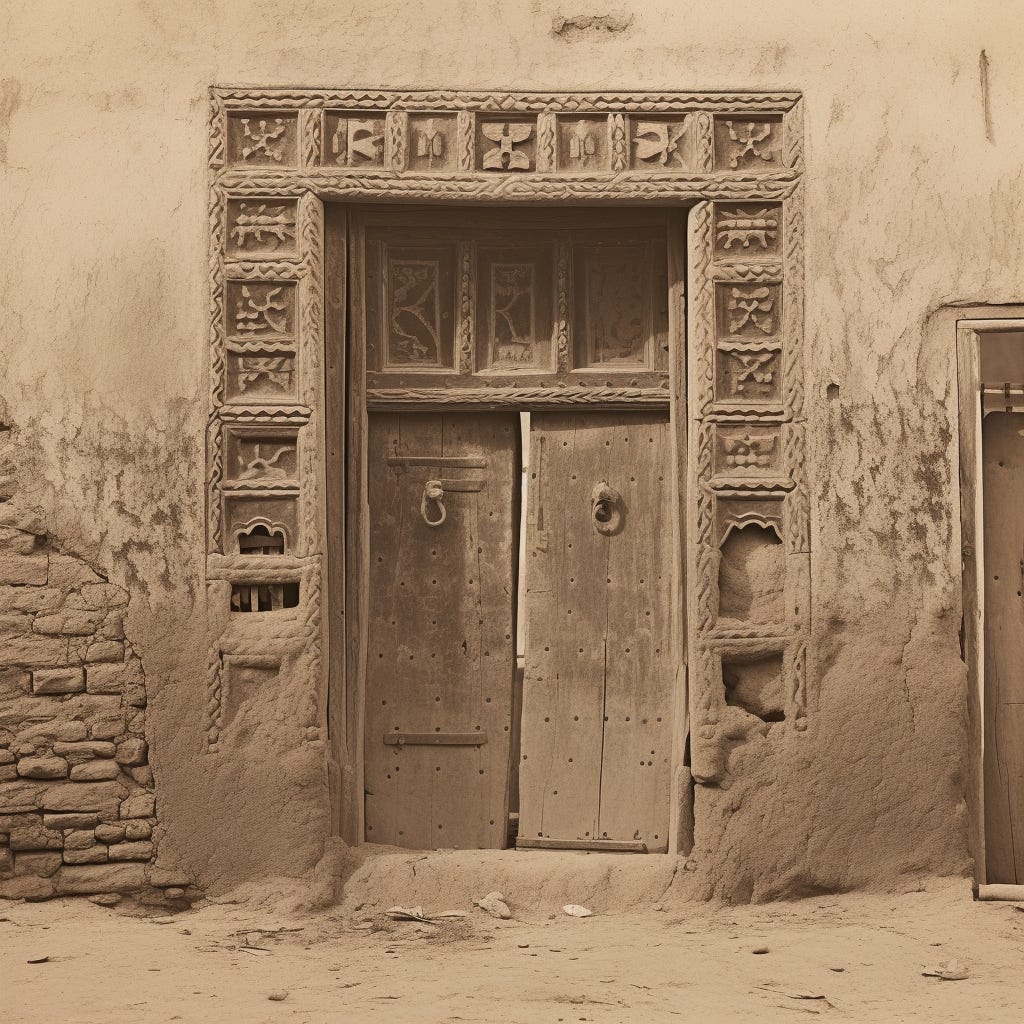The Doorstone
A Poem
The Doorstone
Some say “yesterday,” some say “long ago,” Shahrazad says “the age before now. . .” In the town of Kirkuk (which seldom sees snow) Time smooths out the wrinkles Of Father Time’s brow. It’s a place where the fire-tongued fields of naphtha Blow raspberries up at the sky, Where the downtrodden searching for work will ask, “How?” And the lonely who die there ask, “Why?” A simple flat doorstone once welcomed the feet Of the motherless, fatherless children of yore. A pasha’s success, or a tyrant’s defeat, Would redouble the pattering drum on the floor, And chafe at the liminal stone ’neath the door. Through much of the Eighties Iran fought Iraq; And a bomb took the orphans and building away. But the un-rubbled doorstone survived the attack And watched the sun rise on the following day. Then a new door appeared and a building to hold it, For the elderly folks and the widows of war. And Peace sometimes came to Kirkuk for a visit, But would have to run off to go settle some score. And the men and the women would sit on the doorstone, And mumble their stories and stare. And they’d mourn for their sons who’d been killed for just living, And they’d grieve for their daughters stripped bare. And the eyes of the weather-worn doorstone would weep, As the old women stifled their sighs. But the men would grow heated and rage at the wind, Which had stopped up its ears to their cries. Then another war came, and another big bomb, And it blew the new building away. And more people died. But the doorstone lived on, And it watched the sun set every day. But many years later, and yet long ago, In a “now” that we call “yesterday,” The doorstone was lifted up out of its hole, So a flatbed could haul it away. “It looks much too old for the structure we’ll raise here, A structure that needs a wide door. For we’ve just won the bid for the contract To build the new home for the orphans of war.”



We could live in peace, but it's not in our nature.
Warfare to us is not a stranger.
We punch, we kick, we pull the trigger.
Blindly oblivious to each and every danger.
We will fight till the end of the day.
We could have had peace, we could have had understanding
But it was easier to fight instead of finding another way.
I don't know enough about poetry to say anything constructive so all I will say is that this was marvellous, it captured the essence just right and I mourn for the doorstone along with the soldiers and their orphans and widows. Thanks for posting.